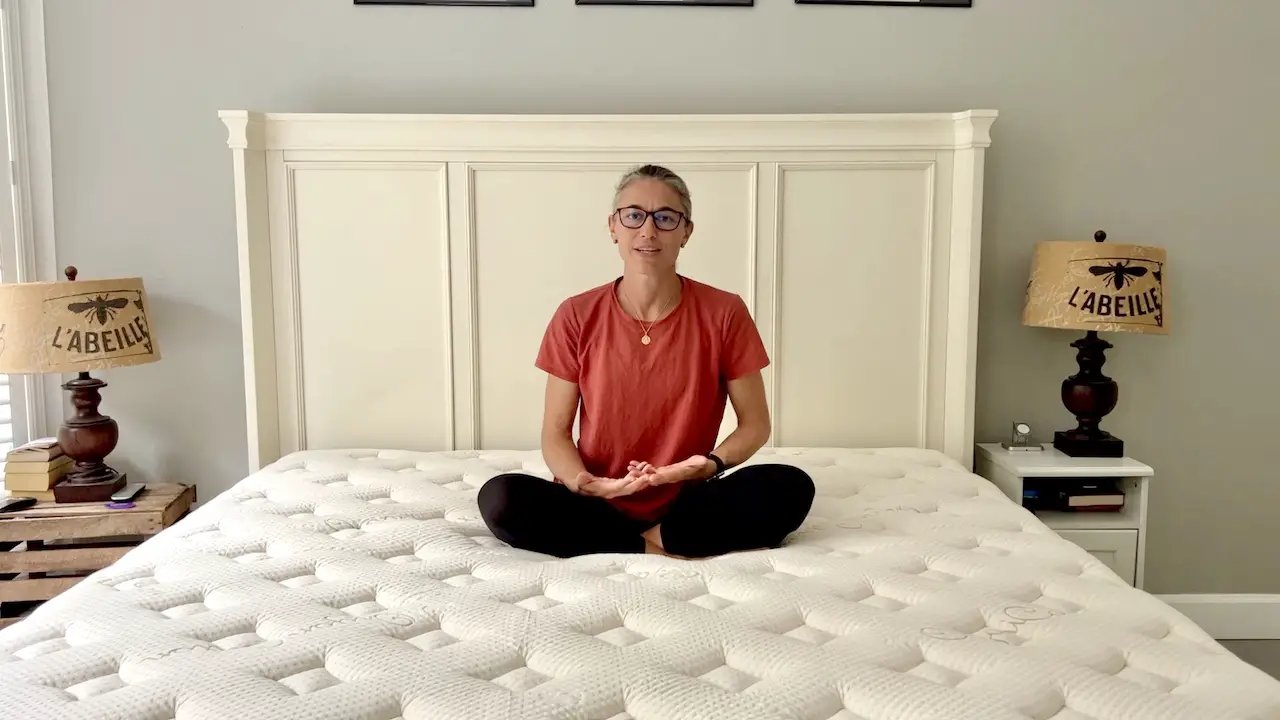BEST DEEP SLEEP MUSIC FOR INSOMNIA
Beat Insomnia Naturally
Falling asleep should be the easiest thing in the world — but for millions of people living with insomnia, it can feel like an impossible task. Whether it’s stress, overthinking, or an irregular sleep schedule, the inability to drift off can quickly take a toll on your physical and emotional well-being.
While there are countless remedies for better sleep — from herbal teas to weighted blankets, here’s our list of natural remedies for insomnia — one of the most soothing and scientifically supported solutions is deep sleep music. The right sounds can calm your mind, slow your breathing, and prepare your body for restorative rest.
Let’s take a closer look at the best deep sleep music for insomnia, including why it works, how to use it effectively, and specific playlists and genres proven to promote relaxation and deeper sleep.
Table of Contents
Understanding Deep Sleep and Insomnia
What Is Deep Sleep?
Deep sleep, also known as slow-wave sleep, is the most restorative stage of the sleep cycle. It is when your body repairs tissues, strengthens the immune system, and consolidates memories. During this stage, your brain waves slow down, your muscles relax completely, and your breathing becomes steady.
Without enough deep sleep, you may wake up feeling groggy, unfocused, or physically exhausted, even after spending hours in bed.
What Is Insomnia?
Insomnia is a common sleep disorder that makes it hard to fall asleep, stay asleep, or get quality rest. It can be acute (short-term) or chronic (lasting for months or longer). Symptoms often include:
Difficulty falling asleep at night
Waking up frequently or too early
Daytime fatigue or irritability
Trouble concentrating or remembering things
While causes of insomnia vary — from anxiety and caffeine to certain medications — the results are the same: exhaustion, frustration, and reduced quality of life.
The Science Behind Deep Sleep Music
Music’s ability to influence mood, heart rate, and brain activity has been studied extensively. Research shows that listening to calming music before bed can help people with insomnia fall asleep faster, sleep longer, and experience deeper rest.
Here’s why:
Slows Heart Rate and Breathing:
Slow, rhythmic music (around 60–80 beats per minute) helps synchronize your heartbeat and breathing with a relaxed rhythm, signaling your body to wind down.Lowers Stress Hormones:
Gentle melodies can reduce cortisol levels, helping calm the nervous system and ease tension.Activates the Parasympathetic Nervous System:
This system controls your body’s “rest and digest” response, which promotes relaxation and helps you transition smoothly into sleep.Distracts From Overthinking:
Soothing sounds can mask environmental noise and redirect your mind from anxious thoughts — one of the biggest barriers for those with insomnia.Encourages Sleep Rhythms:
Certain frequencies, such as binaural beats or delta waves, mimic the brain’s natural sleep rhythms and can promote deep, restorative sleep.
Best Types of Deep Sleep Music for Insomnia
Not all music is created equal when it comes to sleep. Here are the most effective genres and sound types for people struggling with insomnia:
1. Classical Music
Soft, slow classical compositions — especially those featuring strings and piano — are timeless sleep aids. Studies have shown that Mozart, Chopin, and Debussy can reduce anxiety and promote relaxation before bed.
Best Picks:
“Clair de Lune” by Claude Debussy
“Gymnopédie No. 1” by Erik Satie
“Piano Concerto No. 21” by Mozart
2. Ambient and Instrumental Music
Ambient music uses long, sustained tones and smooth transitions to create a soundscape that promotes calm. It’s ideal for masking background noise without being distracting.
Best Picks:
“Weightless” by Marconi Union (scientifically proven to reduce anxiety)
Brian Eno’s Ambient 1: Music for Airports
Liquid Mind’s Relaxing Rain & Ocean Mix
3. Nature Sounds
For many people, the gentle sounds of rain, ocean waves, rustling leaves, or birdsong evoke a feeling of safety and peace. Nature-based tracks can transport your mind to a tranquil outdoor space and lull you into sleep.
Best Picks:
4. Binaural Beats and Delta Wave Music
Binaural beats are created by playing two slightly different frequencies in each ear. The brain perceives a third “beat” frequency that aligns with specific brainwave states, such as delta waves (0.5–4 Hz), which are linked to deep sleep.
Best Picks:
“Delta Sleep System” by Dr. Jeffrey Thompson
“432 Hz Deep Sleep Music” (known for its calming frequency)
5. Meditation and Mindfulness Music
Music used in meditation often incorporates soft gongs, chimes, or Tibetan singing bowls — all of which encourage deep breathing and mental stillness. Perfect for bedtime relaxation rituals.
Best Picks:
“Deep Theta Meditation” by Steven Halpern
6. Lofi Sleep Music
The lofi (low-fidelity) genre combines gentle beats, vinyl crackle, and nostalgic melodies. Its rhythmic yet relaxed style makes it a favorite among younger listeners who prefer a modern take on sleep music.
Best Picks:
“Lofi Sleep” playlists on Spotify
Top Playlists and Channels for Deep Sleep Music
Spotify
“Deep Sleep Music – Calm Your Mind”
Features a blend of ambient, classical, and slow electronic tracks perfect for winding down.“Peaceful Piano”
Soothing piano melodies for gentle relaxation.“Sleep Sounds: Ocean Waves”
Nature sounds to drown out distractions and ease anxiety.
YouTube
Yellow Brick Cinema – Sleep Music
Offers 24/7 of relaxing instrumental music and binaural beats.Meditative Mind
Focuses on frequency-based tracks for healing, sleep, and relaxation.Soothing Relaxation
Combines piano, guitar, and ambient nature sounds in beautifully produced videos.
Apple Music
“Sleep” by Apple Music Relax
A curated mix of serene tracks designed specifically to support sleep cycles.“Deep Sleep Music Experience”
Long, atmospheric songs ideal for uninterrupted rest.
Calm & Headspace Apps
Both apps provide specialized sleep music, bedtime stories, and guided meditations to help you transition from alertness to relaxation.
How to Use Deep Sleep Music Effectively for Insomnia
1. Create a Calming Environment
Pair your music with a sleep-friendly setup:
Dim your lights or use warm, amber tones.
Set your thermostat between 60–67°F (15–19°C) for optimal sleep temperature.
Use blackout curtains or an eye mask.
Play music at a low, consistent volume.
2. Choose the Right Duration
Most people find 45–90 minutes of sleep music ideal — enough to ease into slumber without interruption. Look for playlists that fade out gradually rather than stop abruptly.
3. Use Sleep Timers
If using a smartphone or smart speaker, set a sleep timer so the music turns off automatically once you’re asleep.
4. Combine With Relaxation Techniques
Pairing music with deep breathing, progressive muscle relaxation, or meditation can enhance its sleep-inducing effects.
5. Make It a Routine
Listening to the same calming playlist nightly can train your brain to associate those sounds with bedtime — creating a powerful cue for sleep readiness.
Best Deep Sleep Music For Insomnia: Curated List (2025 Edition)
Here’s a curated list of recommended albums and playlists for anyone struggling with insomnia:
| Music/Playlist | Type | Why It Works |
|---|---|---|
| Weightless – Marconi Union | Ambient | Scientifically proven to reduce stress and lower heart rate |
| Deep Sleep Music, Delta Waves – SleepTube | Binaural beats | Encourages brain’s delta wave activity for deep sleep |
| Peaceful Piano – Spotify | Classical | Soothing rhythm and melody to quiet the mind |
| Tibetan Singing Bowls – Meditative Mind | Meditation | Vibrations induce mental stillness and relaxation |
| Rain on Leaves – Nature Sound Retreat | Nature | Mimics calming rain for white noise and serenity |
| 432Hz Sleep Healing – Sleep Easy | Frequency-based | Restores balance and promotes calm energy |
| Lofi Sleep Beats – Chillhop Music | Lofi | Gentle rhythm for focus and relaxation before bed |
Benefits of Listening to Deep Sleep Music for Insomnia
Here are the main benefits of listening to deep sleep music when dealing with insomnia:
Faster Sleep Onset: Many people report falling asleep up to 30% faster with relaxing background music.
Longer Sleep Duration: Deep sleep music can help you stay asleep through the night by masking background noise.
Better Mood and Reduced Anxiety: Listening to calming sounds releases dopamine and serotonin, improving emotional balance.
Lower Heart Rate and Blood Pressure: The slower rhythm encourages physical relaxation.
Enhanced Sleep Quality: With less restlessness, you spend more time in deep and REM sleep stages.
Common Mistakes to Avoid
There are a few things you can avoid, in order to limit insomnia:
Using stimulating music: Avoid songs with lyrics, fast tempo, or loud percussion.
Playing at high volume: This can keep your brain alert instead of relaxed.
Relying solely on music: It’s best used alongside other healthy sleep habits — not as the only solution.
Using screens before bed: Avoid bright blue light while choosing your playlist; it can counteract the music’s effects.
Complementary Tips to Improve Sleep Quality
To maximize the benefits of deep sleep music for insomnia, pair it with these additional sleep-friendly habits:
Maintain a consistent bedtime — go to bed and wake up at the same time daily.
Invest in a comfortable mattress that supports your body and keeps you cool.
Avoid caffeine or heavy meals within 4–6 hours of bedtime.
Use aromatherapy — lavender or chamomile essential oils pair beautifully with music relaxation.
Try journaling to release anxious thoughts before bed.
When to Seek Professional Help
If your insomnia persists for more than a few weeks, or if music and other sleep strategies aren’t helping, consult a healthcare professional. Chronic insomnia may be linked to underlying issues like sleep apnea, anxiety disorders, or hormonal imbalances that require targeted treatment.
Final Thoughts: The Power of Sound in Healing Sleep
The connection between sound and sleep is ancient — from lullabies sung to babies to the rhythm of ocean waves. Today, science confirms what intuition has long known: the right sounds can help calm the mind and guide the body into deep, rejuvenating sleep.
Whether you prefer the timeless elegance of piano music, the tranquility of rain sounds, or the hypnotic hum of binaural beats, the best deep sleep music for insomnia is ultimately the one that helps you feel at peace.
So tonight, dim the lights, press play, and let soothing melodies guide you into the restful slumber your body deserves.
References
- University of California – Davis. (2023). Is listening to music better than a sleeping pill?. Retrieved from https://health.ucdavis.edu/news/headlines/is-listening-to-music-better-than-a-sleeping-pill/2023/07
- John Hopkins University. Natural Sleep Aids: Home Remedies to Help You Sleep. Retrieved from https://www.hopkinsmedicine.org/health/wellness-and-prevention/natural-sleep-aids-home-remedies-to-help-you-sleep
FAQ
Most frequent questions and answers
The best deep sleep music for insomnia includes slow, soothing sounds like ambient tones, piano melodies, and nature-inspired tracks that promote relaxation and reduce anxiety.
Yes, studies show that relaxing music can lower heart rate, reduce cortisol, and activate the parasympathetic nervous system, all of which help people with insomnia fall asleep faster.
About 45 to 90 minutes is ideal. You can use a sleep timer so the music fades out naturally once you’re asleep.
Yes, as long as it’s low-volume, consistent, and without sudden changes that could wake you. Many playlists are designed for overnight play.
Avoid fast-tempo, lyrical, or emotionally intense songs. Stick to instrumental, slow, and gentle music for the best results.
Share this deal with a friend!

Laura Georgieff
Laura is a mother of three who did not sleep through the night for the first 5.5 years of her kids' lives. She is passionate about sleep quality and loves sharing her experience and knowledge of all thing bedding! It is her mission to help you make the best decisions when it comes to sleep and help you get the best deal on the market!
What is the best deep sleep music for insomnia?
The best deep sleep music for insomnia includes slow, soothing sounds like ambient tones, piano melodies, and nature-inspired tracks that promote relaxation and reduce anxiety.
Can deep sleep music really help with insomnia?
Yes, studies show that relaxing music can lower heart rate, reduce cortisol, and activate the parasympathetic nervous system, all of which help people with insomnia fall asleep faster.
How long should I listen to deep sleep music for insomnia?
About 45 to 90 minutes is ideal. You can use a sleep timer so the music fades out naturally once you’re asleep.
Is it okay to listen to music all night for insomnia?
Yes, as long as it’s low-volume, consistent, and without sudden changes that could wake you. Many playlists are designed for overnight play.
What kind of music should I avoid when trying to sleep?
Avoid fast-tempo, lyrical, or emotionally intense songs. Stick to instrumental, slow, and gentle music for the best results.






